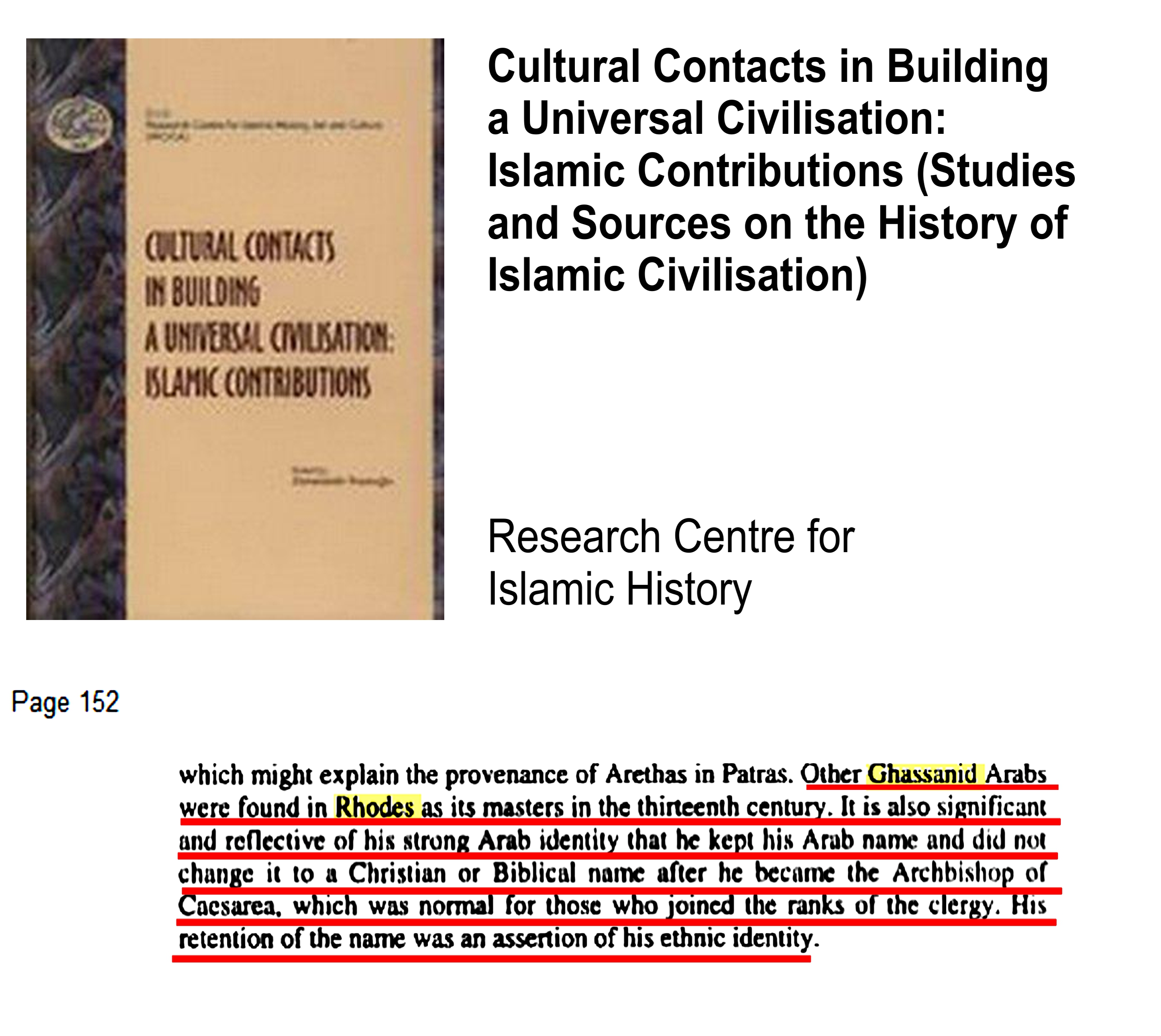
The Rasulid Sultans ruled part of today’s Yemen and Saudi Arabia from 1229 until 1454 CE. The Rasulids descended from the eponymous Rasul a.k.a. Muhammad ibn Harun Al-Ghassani (“The Ghassanid” in Arabic). As personally claimed by the Sultans themselves and recognized by the great majority of Arab historians (and by the unanimous opinion of the Yemenite historians, he descended from the last Ghassanid king Jabalah VI ibn Al-Aiham.

According to Professor Irfan Shahîd, it would make no sense for the Rasulid Sultans (Muslims) to claim descent from the last Christian Ghassanid ruler since it was known that the King Jabalah VI had refused to convert to Islam in his famous meeting with Caliph Omar?
“… the Rasulids themselves were aware of their Ghassanid descent and were proud of it.” The Islamic World: From Classical to Modern Times (Essays in Honor of Bernard Lewis) pp.332
List of Rasulid Sultans:
| al-Mansur Umar I (ar) | ruled 1229–1249 CE |
| al-Muzaffar Yusuf I (ar) | ruled 1249–1295 CE |
| al-Ashraf Umar II (ar) | ruled 1295–1296 CE |
| al-Mu’ayyad Da’ud | ruled 1296–1322 CE |
| al-Mujahid Ali | ruled 1322–1363 CE |
| al-Afdal al-Abbas | ruled 1363–1377 CE |
| al-Ashraf Isma’il I | ruled 1377–1400 CE |
| an-Nasir Ahmad | ruled 1400–1424 CE |
| al-Mansur Abdullah | ruled 1424–1427 CE |
| al-Ashraf Isma’il II | ruled 1427–1428 CE |
| az-Zahir Yahya | ruled 1428–1439 CE |
| al-Ashraf Isma’il III | ruled 1439–1441 CE |
| al-Muzaffar Yusuf II | ruled 1441–1454 CE |
| al-Afdal Muhammad | ruled 1442 CE |
| an-Nasir Ahmad | ruled 1442 CE |
| al-Mu’ayyad Husayn | ruled 1451–1454 CE |
| al-Mas’ud Abu al-Qasim | ruled 1443–1454 CE |
It’s important to point that although the Rasulid Sultans were direct descendants from the last Ghassanid King Jabalah VI – as the Sheikhs El Chemor – they could never claim the Ghassanid titles due to a law imposed by Ghassanid kings in the 6th century CE of the Royal Family having to be necessarily Christian.
It’s also noteworthy that so many rulers descended from Ghassanid King Jabalah VI like:
– Roman (Byzantine) Emperors of the Phocid Dynasty (802-813 CE)
– Ceasars and Masters of the Island of Rhodes (1203-1250 CE)
– Sultans of Rasul (1229-1454 CE)
– Sheikhs of Akoura (1211-1633 CE)
– Sheikhs of Zgharta-Zawyie (1641-1747 CE)
More about the Ghassanid Dynasty HERE




